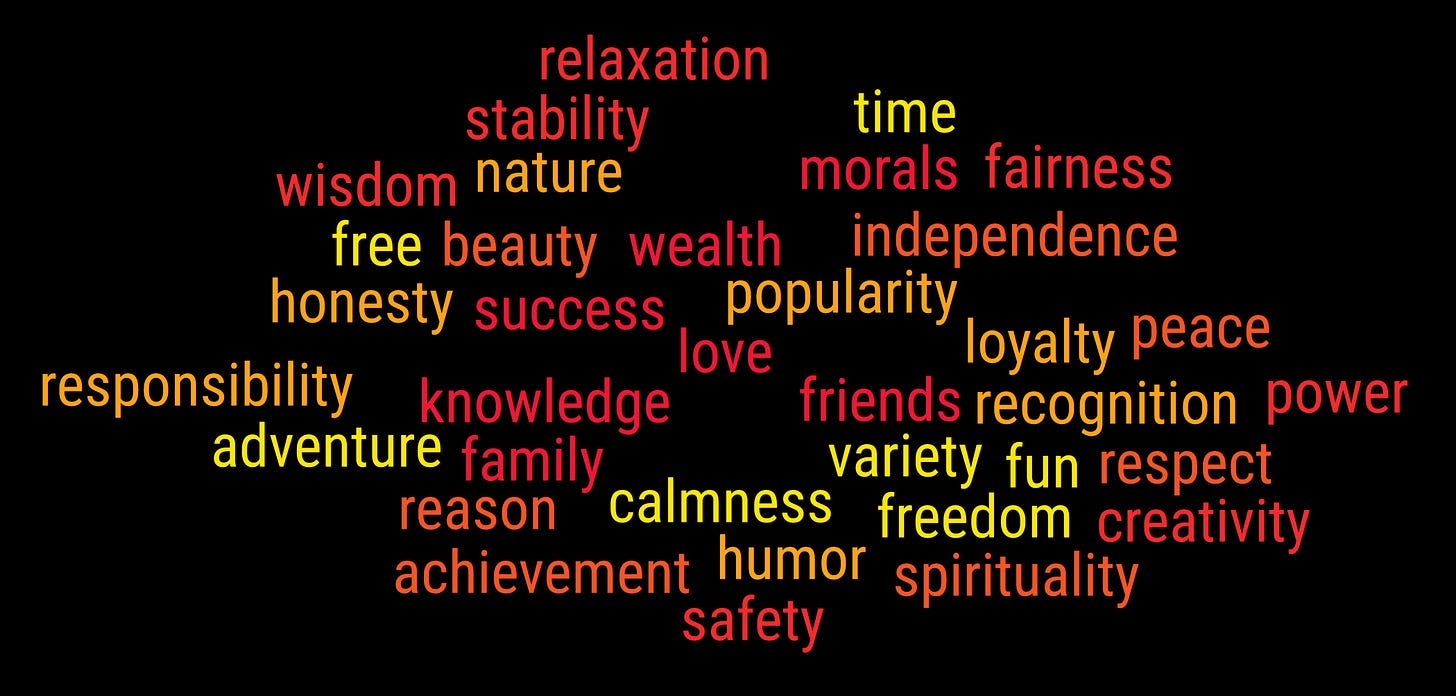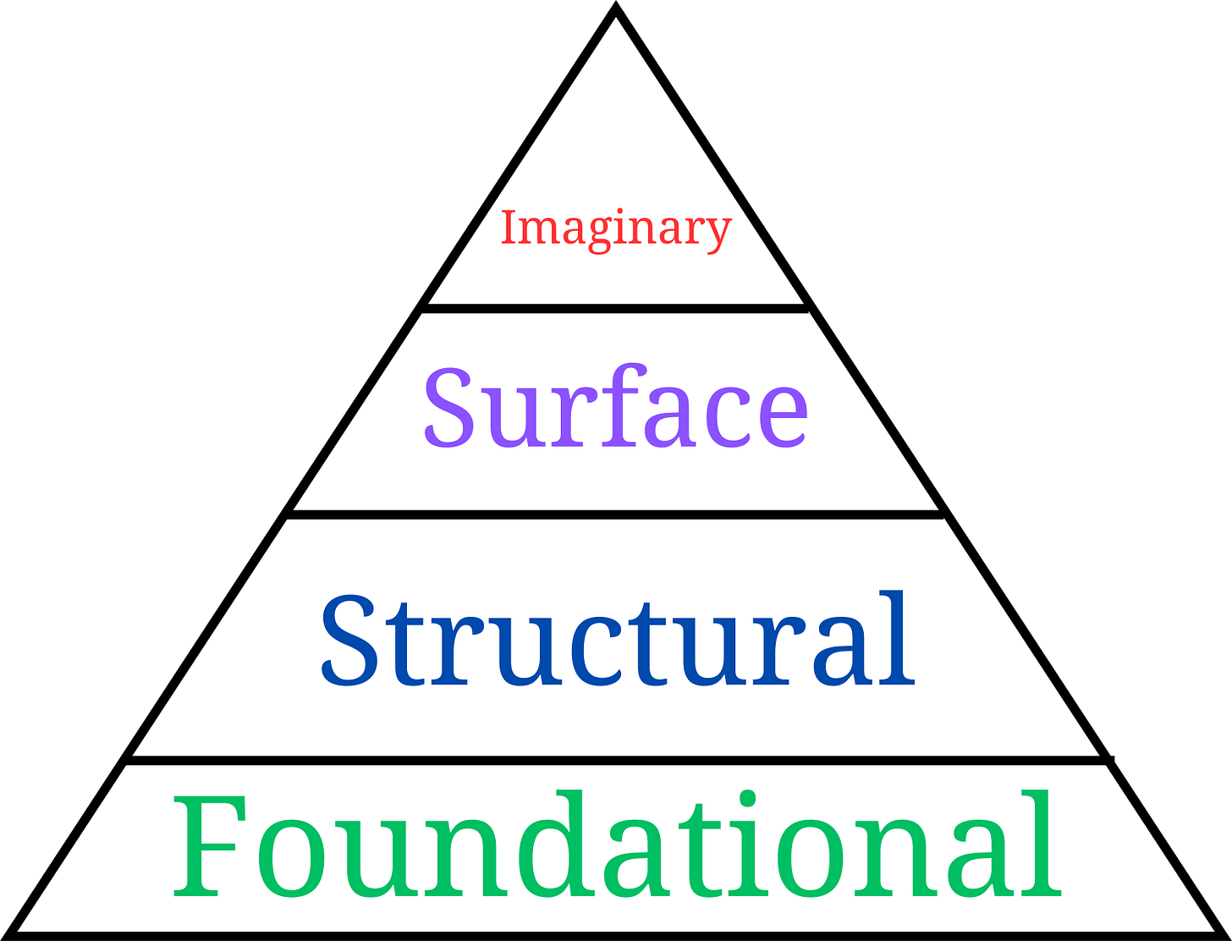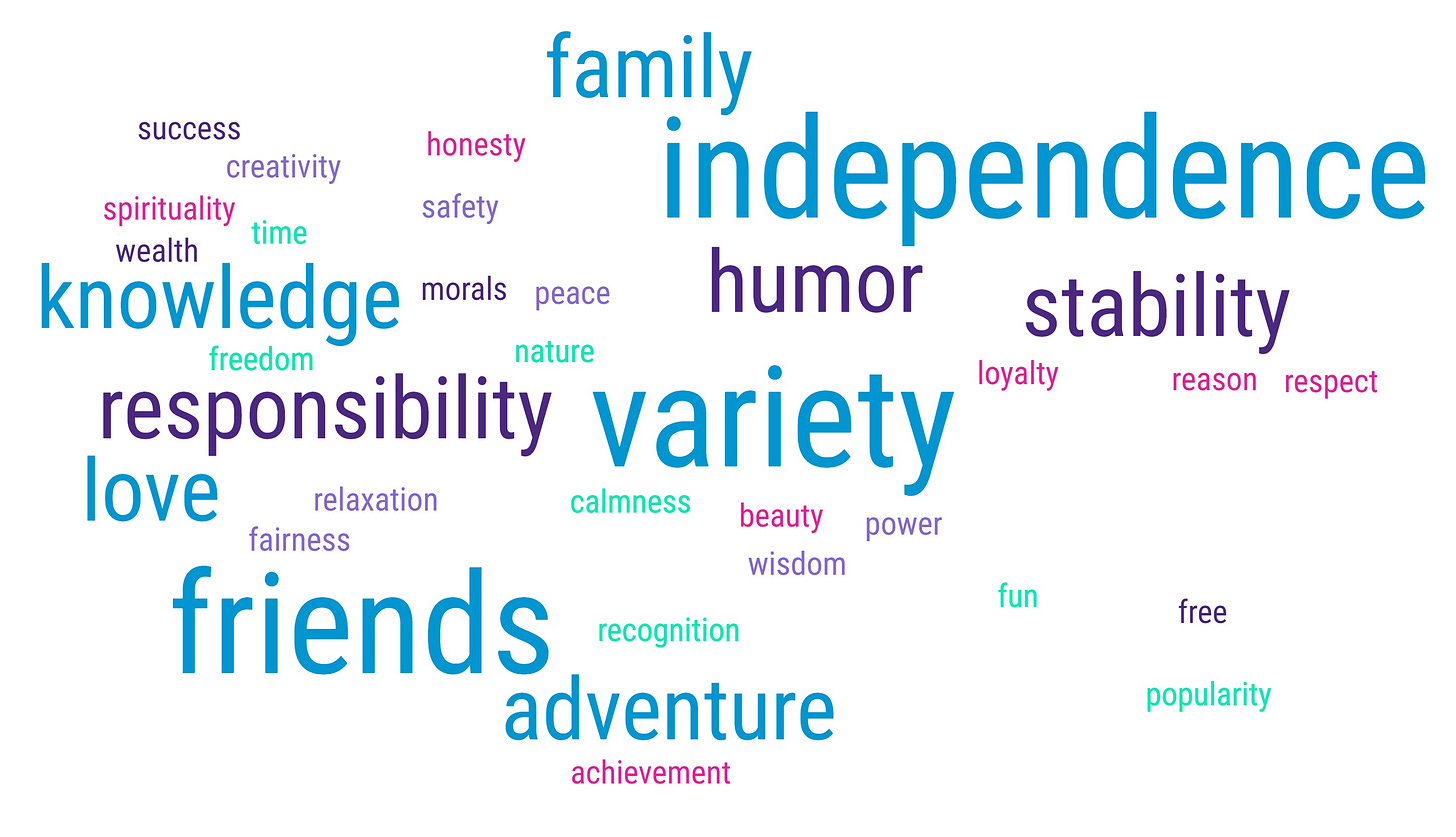Paying Attention to Values
"We reveal our goals through our actions, but our values through our attention" - Adam Grant
I’ve had 2 periods in my career so far when I’ve really had to pause and get clarity on which path to take. The first was when I was finishing my PhD and the second when I got laid off from a biotech company.
In both cases I was at a juncture where I could have gone lots of directions, but what I needed to do was decide which direction would align the most with what I wanted for my career and life (at least at that point).
What I’ve found is, doing these exercises didn’t lead to a major ah-ha moment nor did a job magically appear once I figured out which road to take.
Instead it deepened my understanding of myself and primed me to take into consideration my strengths, interests, and values when I was making career decisions. It also gave me some discernment when I was looking at different options and choosing equally good, but different, paths.
Identifying Your Values
I was very wary about picking values from a list and saying “These are my values!”. Most “values” words all seem like “good” things and I should value all of them.
But I gave myself over to the task and it became evident that some words really did jump out at me. By noticing which words resonated, I was able to make distinctions about underlying themes in life and in my career.
Find a values list (or this one, or this one…there are many all over the internet).
Circle/mark all the words that stand out to you. You can do this focusing on your life in general, or being specific with your career.
Rank the top 10 (as best you can) or sort from Most Important to Least Important
Briefly describe what each value means or represents to you. You can include what activities you associate with it or how this value is expressed in your life.
I like categorizing and organizing things, and found that just having a list of important values wasn’t as meaningful as sorting them into groups or levels. This helped me get a better grasp on how the individual values fit into my life.
Start with a few keystone or foundational values (or major life categories).These are larger buckets that help shape your life. Pillars that set the foundation for your life.
Health/Constitution
Relationships/Community
Creativity/Craft
Contribution
Growth/Contemplation
These high level values are often similar between people (though their specific meanings are different), but if these don’t resonate with you, find ones that do.
Try sorting your individual ranked values into these keystone value buckets
Another way to view this is asking “what am I doing in my life that supports each of these major value pillars?”
I have also looked at my values through a layered lens, sorting them into structural, surface and imaginary values.
Structural values are your personal values (words from your values list). They provide the framing for how you live your life.
Surface values are what give satisfaction and variety to your life, more specific and “minor” to your structural values, but critical all the same.
Imaginary values are obstacles that get in the way of you actually living your values. They are often what we spend our time on even though we don’t actually value them.
All these ranking and sorting methods can be helpful for prioritizing and contextualizing what your values are, but also how they fit into your life. Find the strategy that works best for you, the goal is to get clear about what your values are.
Playing to Your Strengths
As a millennial I love a quiz. BUT I don't think they should be taken as complete truth nor do I think employers or others should use them to evaluate people. I do think they can be helpful ways to clarify and frame (for yourself) what your strengths and tendencies are.
Especially if you have imposter syndrome, I find self knowledge assessments a good way to validate how you actually feel about yourself. Sometimes you listen to external sources better than internal ones.
I’ve listed a few I’ve used (there are tons more). Again, take whatever is meaningful from these and don’t treat the results as set in stone. The results should help you see yourself better, only take what is meaningful for you.
These sources are ones I happened across at various times and they allowed me to organize my self-reflections in new ways. They all gave me slightly different outputs, but I could see themes and trends.
Spending time reflecting and thinking about these topics can seem esoteric, especially if you are at a major career transition or in the midst of looking for a new job. The information you gather from values activities doesn’t tell you what job to apply for, nor does it guarantee you’ll even get the job.
It does help you understand yourself.
Until next time, follow your compass!





